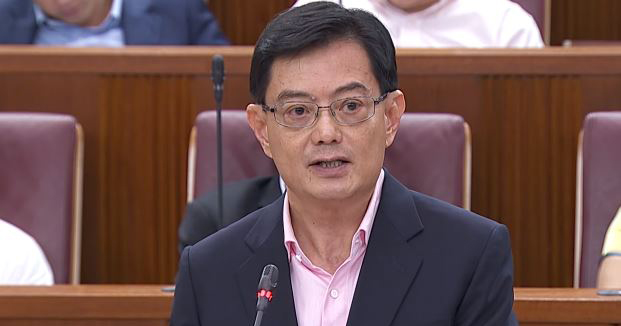Finance Minister Heng Swee Keat has revealed that the government has yet to decide when the Goods & Services Tax (GST) would be raised from 7 to 9 per cent.
Heng was making a round-up speech in Parliament on Feb. 28 after three days of Budget debates.
His speech came after more than 50 members of parliament spoke on this year's Budget statement delivered by Heng on Feb. 18.
When will GST go up?
Heng acknowledged there have been reservations about the timing and approach the government had for raising taxes.
He noted that MP Foo Mee Har had asked for the GST hike to be postponed and her suggestion that funds set aside for packages, such as the Merdeka Generation Package (MGP) and the planned borrowing for future infrastructure expenditure, could postpone the need for a GST increase.
Heng explained that GST needed to be increased to support increased spending in areas such as healthcare, pre-school education and security.
He added that such spending was on a "completely different scale" compared to one-off cohort spending like the MGP.
He further explained that with Singapore's population ageing, spending on healthcare schemes and other parts of the healthcare system would "increase structurally".
Citing a recent OECD paper, Heng said that by 2060, the median OECD country would need to increase revenues by 6.5 percentage points.
The GST hike from 7 to 9 per cent would raise GDP by 0.7 percentage points.
In sharing that the government has yet to decide when to raise the GST, Heng said that the government will exercise care when making the decision and monitor economic conditions.
Will there be tiered GST?
Next, Heng responded to MP Saktiandi Supaat's suggestion for a tiered GST rate to reduce the tax burden for the lower income families.
Heng said that this suggestion had been raised before in previous Budget debates and gave a list of reasons why tiered GST was not suitable.
First, he said that it was difficult to draw a line on what goods was considered a necessity.
He used bread as an example of the difficulty in deciding if white bread, wholemeal bread, bread sold at artisan bakeries are considered necessities.
Next, he said that better-off households spent more on an absolute term and stand to benefit more from a reduced GST rate.
Lastly, he said that tiered GST in many countries raised administrative and compliance costs, which were ultimately passed on to consumers.
He explained that Singapore's GST Voucher scheme provided more help to lower-income households and seniors, and was more targeted with those who need help most getting it directly.
In his Budget statement in 2018, Heng said that GST would be increased some time between 2021 and 2025.
Top image screenshot from Gov.sg YouTube
If you like what you read, follow us on Facebook, Instagram, Twitter and Telegram to get the latest updates.
